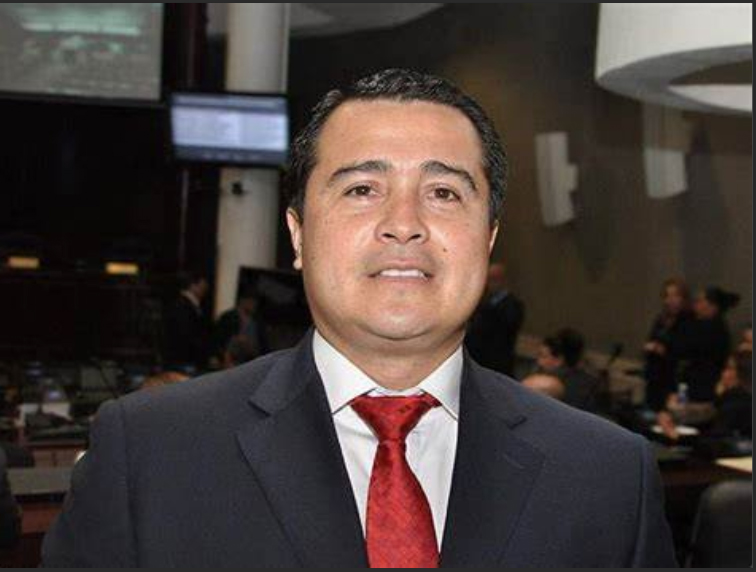NEW YORK, (Reuters) – Honduran politician Juan Antonio “Tony” Hernandez is accused of smuggling tons of cocaine into the United States for years under the protection of his brother, the Central American country’s current president, a U.S. prosecutor told jurors at the opening of his trial yesterday.
In his opening statement in federal court in Manhattan, Assistant U.S. Attorney Jason Richman said Hernandez even personally took a bribe for his brother from Mexican drug lord Joaquin “El Chapo” Guzman.
President Juan Orlando Hernandez on Twitter said it was “100% false, absurd and ridiculous” that he received money from drug traffickers.
Richman urged the jurors to find Tony Hernandez, who was arrested in Miami last year, guilty of drug conspiracy and possessing illegal weapons. Hernandez has pleaded not guilty.
Richman described Tony Hernandez as a key player in a “sophisticated state-sponsored organization” that operated with the help of “bought and paid for” Honduran government, military and police officials.
“Most importantly, the defendant was protected by, and had access to, his brother, the current sitting president of Honduras,” Richman said.
Believing he was immune from prosecution, Tony Hernandez became so “arrogant” that he had his initials stamped on packages of cocaine and boasted of his arsenal of illegal weapons, Richman said.
Hernandez’s lawyer, Omar Malone, told the jurors the case was based on lies by drug traffickers seeking revenge on Hernandez and his brother, the president.
“When he speaks of that million that he received for the campaign, the prosecutor presented no proof, no documents, no evidence,” said Amilcar Hernandez, another brother of Tony Hernandez, who attended the trial.
“What we are seeing is that the prosecution, in its desperate mood and with no conclusive evidence, is trying to drag a political character onto the humble innocent who is Juan Antonio Hernandez.”
The president, who has not been charged with a crime, has in the past denied involvement in drug trafficking.
In a speech before the United Nations General Assembly last week, he said that for his “struggle against organized crime” he was the target of “a dirty smear campaign, led by narcotraffickers, gang members, corrupt or purged police, and confessed killers, businessmen who collude with those criminals and even politicians.”
On Wednesday, his office said the government had broken up the six most powerful drug cartels in Honduras and extradited 24 people to the United States.
A preliminary motion filed in the case August listed Juan Orlando Hernandez as a co-conspirator of his brother, both as congressman and presidential candidate before 2014, and as president.
Richman told jurors they would hear from several of Hernandez’s onetime co-conspirators. One of those, according to court papers, is Devis Leonel Rivera Maradiaga, former leader of the Cachiros drug gang, who has been cooperating with U.S. authorities since 2013.
But Malone urged the jurors to be skeptical of the prosecution’s witnesses, who are currently in prison, saying they would “say what they think the government wants to hear” in an effort to get their sentences reduced.
He said both Hernandez and his brother were being targeted by drug traffickers because they were tough on crime.
The trial is unfolding as the Hernandez administration faces intense pressure from U.S. President Donald Trump to curb migration to the United States from the crime-wracked and impoverished country.
Last week, Trump stood side-by-side with President Hernandez in New York, their thumbs up, as the countries struck a deal to take in more asylum seekers.
The U.S. government has supported Hernandez, a conservative, as a staunch ally in the fight against drug trafficking. In Honduras he has faced mounting popular opposition and weeks of intermittent street protests since he was sworn in for a second term in January 2018 despite allegations of electoral fraud.
Several other prominent Hondurans have already been prosecuted in Manhattan for drug-related crimes. Fabio Lobo, the son of a former president, was sentenced to 24 years in prison in September 2017 after pleading guilty to conspiring to import cocaine into the United States.
Yani Rosenthal, a former Honduran legislator who twice ran for president, and his cousin Yankel Rosenthal, a former minister of investment, have also both been sentenced to prison. Prosecutors have said the Rosenthals worked closely with the Cachiros.










